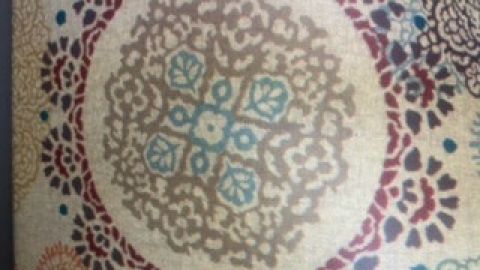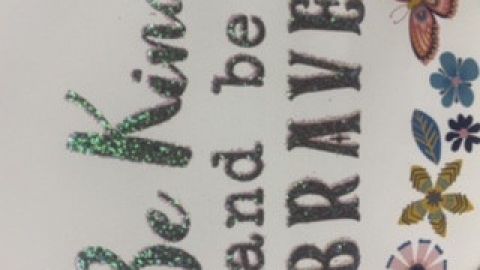In a previous article I noted that I would talk about why I opted not to follow-through with my rabbinical studies. I was raised in a fairly orthodox Jewish household by grandparents that survived the Holocaust. I attended shul on a weekly basis, spent hours studying with various rabbis, and was fully invested in learning Hebrew, Aramaic, and Yiddish. I fasted before Shabbat, and was absolutely focused on being a Mensch and not dating a Goyim. I assumed that as my grandmother was a Shadchan she would find me a nice Jewish girl to marry. Jewish life seemed full and complete, and I certainly felt connected to the Jewish community in the Brooklyn neighborhood where I was raised.
Towards the end of my rabbinical studies I was asked to meet with the rabbis. I was impressed with my progress and assumed that something good would come out of the meeting. Rabbi “L” was one of my mentors and someone who listened to the first 5th step I completed without judgment. My grandmother spoke highly of him and I felt safe talking to him and trusted his judgment. Before he taught at my Rabbinical school, he was a professor of Engineering at a college in upstate NY. When I met with the Rabbis, Rabbi “L” said that the way I asked questions and the way I responded to questions the entire faculty was pretty convinced I was an atheist. This very kind man who I trusted without reservation told me something I knew one some level, but didn’t want to admit. Rabbi “L” told me I needed to tell my grandparents as a form of making amends.
I needed to find a distraction, any distraction. I returned to temple, AA meetings, martial arts practice, and studying the languages of the Jews. I was embarrassed at how I lied to my grandparents and lived a life of deception. I’m Jewish and assumed my Jewish life would support my faith. While I was devout in my practice, something seemed to be missing. I came to understand that while I wanted to believe, I wasn’t hardwired to believe in a supernatural deity. After a few months I approached my grandparents and made my grand confession. My grandmother smiled and told me that both she and grandfather had known for some time that I was an atheist. They thanked me for following through on their requests to attend Rabbinical school, participate in the Jewish culture, and study the language. My grandmother said that while I no longer needed to attend to the activities of the Jewish culture, she said that both she and grandfather required that I continue with AA meetings and martial arts practice. So as I wouldn’t be complicit in any more deception I honored the wishes of my grandparents and admitted to them that I had also eaten pork when I wasn’t at home. I felt a tremendous sense of relief and came to understand what the AA literature discussed when it mentions “freedom from bondage of self”.
I realized what had been missing from my life. I understood that being consistent meant that I would need to live my own truth.
After I told my grandparents, I told the rest of the students in my class at Rabbinical school. I talked to my martial arts teacher and anyone in my life who was close to me. Some people told me they suspected that I was a non-believer while others told me I was having a crisis of faith. When I asked these folks what manifested in their life to demonstrate they believed in God and they told me, I let them know those sorts of experiences never happened to me. My friends in Rabbinical school pointed to me surviving my addiction as proof of God. I couldn’t accept this as proof as I understood that giving some deity absolute credit for saving me dismissed the role that the medical community had in saving my life. I spent 31 years of my life as a mental health counselor treating veterans with PTSD and addictive disorders. My graduate work in forensic psychology and clinical psychopharmacology relied on peer-reviewed methods. I’ve returned to graduate school and I’m currently studying theoretical physics and algebraic geometry. I am a guy that needs proof, and my former career and current graduate work is filled with what I see as proof.
Let’s define what I mean when I say proof:
– Peer-reviewed
– Repeatable
– Observable
– Demonstrable
– Verifiable
– Falsifiable
It’s probably not a leap to suggest that a belief in God would be able to meet any of this criteria. I don’t expect an answer from any deity. I know a lot of fine people who have God at the center of their life. Every single sponsor I’ve had in the program of Alcoholics Anonymous had a belief in a higher power, and when you asked them to define this higher power they would always credit God with helping them get and stay sober. Nearly all of the women I have dated believed in God. This wasn’t an issue for me as both groups of people never had a need to foist God on me nor did they have a need for me to believe. I certainly don’t have a problem with people believing in God as long as they don’t use their faith to enact law and enforce policy.
My grandparents had a quiet faith. I never heard them talk about God more than three times the entire time I knew them, and the only reason they said anything about God is because I asked their opinion. My grandmother said that talking about God was useless and that people needed to live their faith My grandparents often felt that the people who talked the loudest about their faith weren’t doing anything other than trying to convince themselves they believed.
The program of AA suggests that people need a higher power to remain sober. Some people in the program work towards finding spirituality. I like this definition of spirituality from Wikipedia which includes “a sense of connection to something bigger than ourselves, and it typically involves a search for meaning in life. As such, it is a universal human experience – something that touches us all”. In my case the “something bigger” involves feeding people that are homeless, donating clinical hours to veterans suffering with PTSD, working with people to help them stay sober, and completing graduate work in physics and math. All of these practices help me feel connected to people and none of these practices require that I believe in God. I often see the connection I had with my grandmother as my ‘higher power’. My grandparents, especially my grandmother, is my moral compass. If I’m stuck or feel disconnected I can simply think about any number of conversations I had with my grandmother about a particular issue and I’m able to get clarity. My grandparents helped me get and stay sober.
Six of the 12 steps directly reference God, so it’s not a leap to suggest the program is focused on God and it would be difficult to argue with people when they suggest AA is a religious program. I’m reminded of a recent court case filed by a prisoner who suggested that mandatory attendance in AA violated his constitutional rights. The court sided with the prisoner. The probation and parole officers involved in the case counter-sued and lost. The Ninth Circuit Court of Appeals upheld the opinion of the lower court and suggested that the dividing line between church and state is so clear that mandating AA attendance violates the First Amendment and the establishment clause of the US constitution. The court also suggested that a prisoner cannot be forced to attend 12-step meetings as a condition of his release and that probation and parole officers as well as prisons can be held liable for damages by mandating attendance at 12-step meetings. The Court’s opinion suggested “while we in no way denigrate the good work of AA and NA, attendance in their programs may not be coerced by the state”.
Reading this article you could suggest that I am wholly critical of Alcohol Anonymous. I think that would be an unfair assessment. I love AA and credit the program for saving my life and to a large degree, keeping me sober. Just as you cannot talk about Ovarian cancer without talking about women, you cannot talk about AA without considering how some people take exception with what might be seen as a religious overtone in the program of AA.
For many years Alcohol and drugs were my higher power. While getting drunk and loaded were the most important things in my life, I came to realize I was asleep on my life. I lived my life in fear and decisions were made for me. This wasn’t okay then and it’s certainly not okay now. As an extension of my evolving spirituality I have come to realize then when I focus on what isn’t working in my life my world feels really small, and when I focus on possibility I enliven my life, expand my outlook, and attract more good stuff my way.
I’m an atheist as when I honestly examined the historical, philosophical, and scientific evidence for and against the existence of a deity and came to a conclusion that for me, no such supernatural deity exists. When I came out as an atheist I wasn’t sure how the people in my life would react and I wasn’t certain I would be welcome in Alcoholics Anonymous. Both of these fears were unfounded. When I approached steps two and three with my last sponsor he simply asked me if I had a higher power that worked for me, and when I said that I did, he simply responded “I guess we’re done with those steps”.
Much like Rabbi “L”, my sponsor and grandparents, I found almost universal acceptance when people find out I do not believe in God. With the exception of several people who were absolutely convinced I would relapse unless I found God, most people are interested in my story. They want to know how I’m able to stay sober without God in my life and I continue to receive feedback that people love the stories I tell about my grandparents, the lessons they taught me, and the skills I learned from them that have enabled me to remain sober.
If you’re like me and have found that you don’t believe in God, or you lost your faith and you’re wondering if it’s possible to stay sober, I want to invite you to realize that yes, absolutely. It’s possible to create your own definition of a higher power. It’s possible to stay sober as an Atheist, and it’s possible to find your way if you have a secular approach to recovery.
Whatever you do, good luck on your path.




-480x270.jpg)
